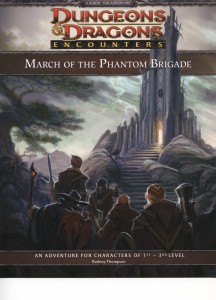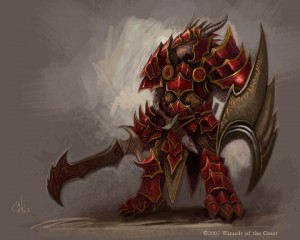 “Salazar Vladistone is a hero.” At least he was during his lifetime, according to Faldyra. After last week’s battle against the ghosts of Hammerfast, this week’s encounter began with a quick breather in the library. The PCs found Faldyra pouring through old dusty tomes in the library’s basement archives. She’d discovered information about the leader of the Phantom Brigade as well as a possible way to defeat him once and for all.
“Salazar Vladistone is a hero.” At least he was during his lifetime, according to Faldyra. After last week’s battle against the ghosts of Hammerfast, this week’s encounter began with a quick breather in the library. The PCs found Faldyra pouring through old dusty tomes in the library’s basement archives. She’d discovered information about the leader of the Phantom Brigade as well as a possible way to defeat him once and for all.
This week at our FLGS we were running with a skeleton crew. My table had only three players, but one of the veterans was willing and able to run both Belgos and Valenae. The other two players were running Jarren and a new addition to the party, a Dragonborn Fighter. The other table at our FLGS had five players, all of them still sore from the TPK they suffered last week and looking to get back into the game.
